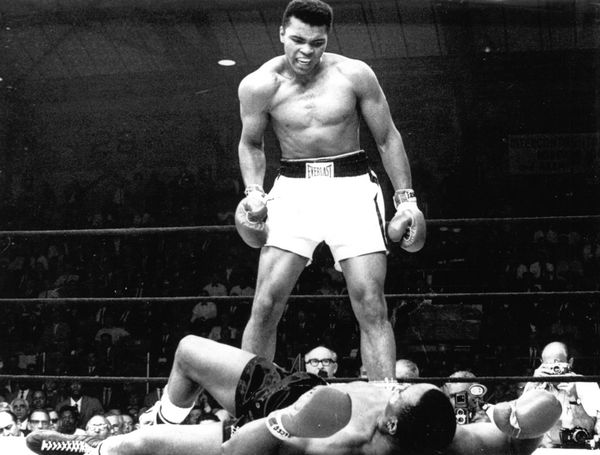
via Imago
PALUPI Muhammad Ali Cassius Clay in the boxing ring standing over Sonny Liston 1965 PUBLICATIONxINxAUSxGERxSUIxONLY Copyright: xTopFotox Sp000451

via Imago
PALUPI Muhammad Ali Cassius Clay in the boxing ring standing over Sonny Liston 1965 PUBLICATIONxINxAUSxGERxSUIxONLY Copyright: xTopFotox Sp000451
The legacy of boxing legend Muhammad Ali lives on, even 7 years after his death. Ali wasn’t just a boxer, but a well-known social activist. His stance on the Vietnam War is well-known to this day. Ali’s decision to become a conscientious objector during the Vietnam War left a big hole in his boxing career. When the conflict escalated, he boldly declared, “I’m not going to fight for what I don’t believe in.” This stance, while principled, cost him dearly as his boxing career faced its most challenging period.
In the prime of his abilities, Ali was at the pinnacle of the boxing world. His charisma and prowess in the ring had captivated fans worldwide. One of his most memorable bouts occurred just before they stripped him of his title, and the boxing world suffered a loss that was unparalleled.
ADVERTISEMENT
Article continues below this ad
Muhammad Ali: the activist and boxer extraordinaire
Joe Rogan, on his famed podcast, the ‘Joe Rogan Experience’, remarked on Ali’s career-breaking decision. He pointed out one particular fight to make his point. According to Rogan, facing off against Cleveland ‘Big Cat’ Williams, Ali’s performance was his “favorite.” About the fight, Joe Rogan said, “Ali just boxed this beautiful dance and just pieced him up. So they robbed us of the real Ali.”
Joe Rogan pointed out how he couldn’t box when he came back, saying, “During those three years when they stripped him of his title and he couldn’t box when he came back, he just wasn’t the same guy.” Ali’s journey as a civil rights activist, a religious freedom fighter, and a humanitarian stopped him from fighting a war he did not consciously believe in. This cost him his career.
Immediately after this historic match, Ali’s refusal to be drafted led to his title being stripped. He pled as a conscientious objector and refused to fight in the war, which cost him his title. For three long years, he couldn’t step into the ring, and the world was denied the Ali who had enthralled everyone with his skill and charisma. Though he subsequently did make a comeback, he lacked the same determination and aura, according to Rogan.
ADVERTISEMENT
Article continues below this ad
After they lifted the ban, spectators quickly noticed that Ali had undergone a noticeable change; his three-year hiatus had stripped away his prime, and the relentless march of time had begun to take its toll. While he occasionally showcased glimpses of his former brilliance, it was evident that things weren’t entirely as they once were.
However, Muhammad Ali’s legacy is more than just his boxing record. He fought back against the atrocities he had seen and endured as a young man. As a boxer, he faced adversities and was ostracized for fighting for his beliefs.
ADVERTISEMENT
Article continues below this ad
Ali signifies the strength of his convictions, the price he paid for them, and the enduring impact of his decision to be a conscientious objector during the Vietnam War. Ali’s boxing career was undeniably altered, but his place in history as a symbol of courage and principle remains undebatable.
Watch This Story: 8 Muhammad Ali Quotes That Will Live Forever
ADVERTISEMENT
ADVERTISEMENT
ADVERTISEMENT
ADVERTISEMENT

